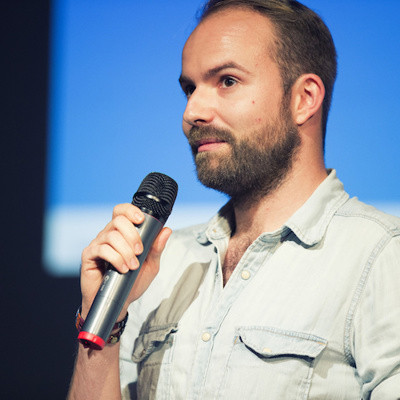Session
The dark ages of IoT
Abstract
Advertisements suggest that we are at the zenith of mankind's scientific knowledge and technological power, but when it comes to IoT and the so-called 'Smart Home', we are clearly not. In fact, we are in the middle of the dark age.
I'll explain the challenges that we're facing today (from an implementors perspective), what's 'wrong' with our current products & show you how a smart 'Smart Home' experience could look like in the near future.
Details
If people buy "Smart Home" systems today, disappointment isn't far off. In fact, I haven't met a single person who is satisfied with their Smart Home installations & gadgets. Most of the time it is because they aren't smart at all. The interaction with the user is terrible, the systems are flawed & pulling out your smartphone to adjust turn on your living room lights feels more like a step back.
Yet, there are reasons why vendors weren't been able to solve the problems of this fairly young technologies. And it´s not because vendors don't see the needs of the users (mostly). I´ll explain (with code, examples & hardware demos), where we are today, what problems are still waiting to be solved and how modern (so-called) artificial intelligence (don't like that term) used to solve the biggest problem of all: The human <-> computer interface.
Note: Code examples will be in JavaScript (NodeJS)
Pitch (Anything else you want us to know about you or your talk?)
I´ve been working in the field of IoT (to be precise in the field of Smart Home systems - see *1) for over 6 years now. The landscape changed a lot in those 6 years, but a lot of problems we encountered early on haven't been solved until today. Not from us. Not from other vendors. And there are reasons why they still persist, so I´ll explain those problems (mostly user interaction, a few technical difficulties as well), and how we´re (as in all implementors, not only the company I´m working for) trying to solve them with upcoming technologies.
Note: This will not be a product pitch of any sort, I´ll only use Open Source technologies to explain the system & will mention the product I´m working on max. 1 or 2 times to illustrate problems device vendors have to solve.
What will the audience learn from it
The problems implementors face today when building smart home systems
About the protocol madness & technical details of the most used smart home protocols (Plus learn how to implement/use them)
How the industry fails to provide UIs that enable users (and why)
Basic understanding of the data flow & building blocks of Smart Home systems
How AI (Cognitive Services) can enhance the Smart Home experience (in fact, just really enable it)
How those systems can not only be technical toys but of real help (f.e. for people suffering from depression)
How interaction with those systems will get more natural & what we can expect of it in the near future
Outline
The history of Seattle a perfect analogy for the evolution of Smart Home technologies so far
The gap between technical innovation & innovation of User Interfaces (based on studies about Europes most popular home automation systems)
What do we as developers think when we hear IoT? (Hint, hardware, devices, microcontrollers...)
What do we forget about? (Hint: Our users, the human beings who need to interact with the systems we build)
WTP (What the protocol) An overview of the most used smart home protocols & their key entities
Demo (+ Code): Use an Enocean based light switch to control an Arduino
Explanation of the complexity of a "modern" lightswitch (Which is not smart & not even automated)
What could an automated (still not smart) home look like (Example of a geofence, lightswitch scenario)
Quick overview of one of the crucial Automated Home parts, the rule engine
It all is still pretty technical & abstract
Modern UIs converse with the user in a way it´s "normal" for them (f.e. Chatbots)
What could a smart home look like
Use AI (Cognitive services) to enhance the UI, by normalizing the interaction with the user
What separates humans and computers most? Emotions!
Demo (+Code): How can we teach a computer to "calculate" our emotions
What´s this good for? Example: People who suffer from depression can benefit from surroundings that adapt to their state of mind
Summary: Technology should blend into the background & enable the user. Interaction needs to get more natural.
Who is this presentation for?
For everyone who wants to...
...understand why the current state of Smart Home systems is so displeasing.
...know what problems implementors face.
...how the future of those systems could look like & which technologies it´ll be driven by.

Sebastian Golasch
If I would’ve wanted to work in ‘Enterprise’, I’d have joined Starfleet…
Köln, Germany
Links
Please note that Sessionize is not responsible for the accuracy or validity of the data provided by speakers. If you suspect this profile to be fake or spam, please let us know.
Jump to top